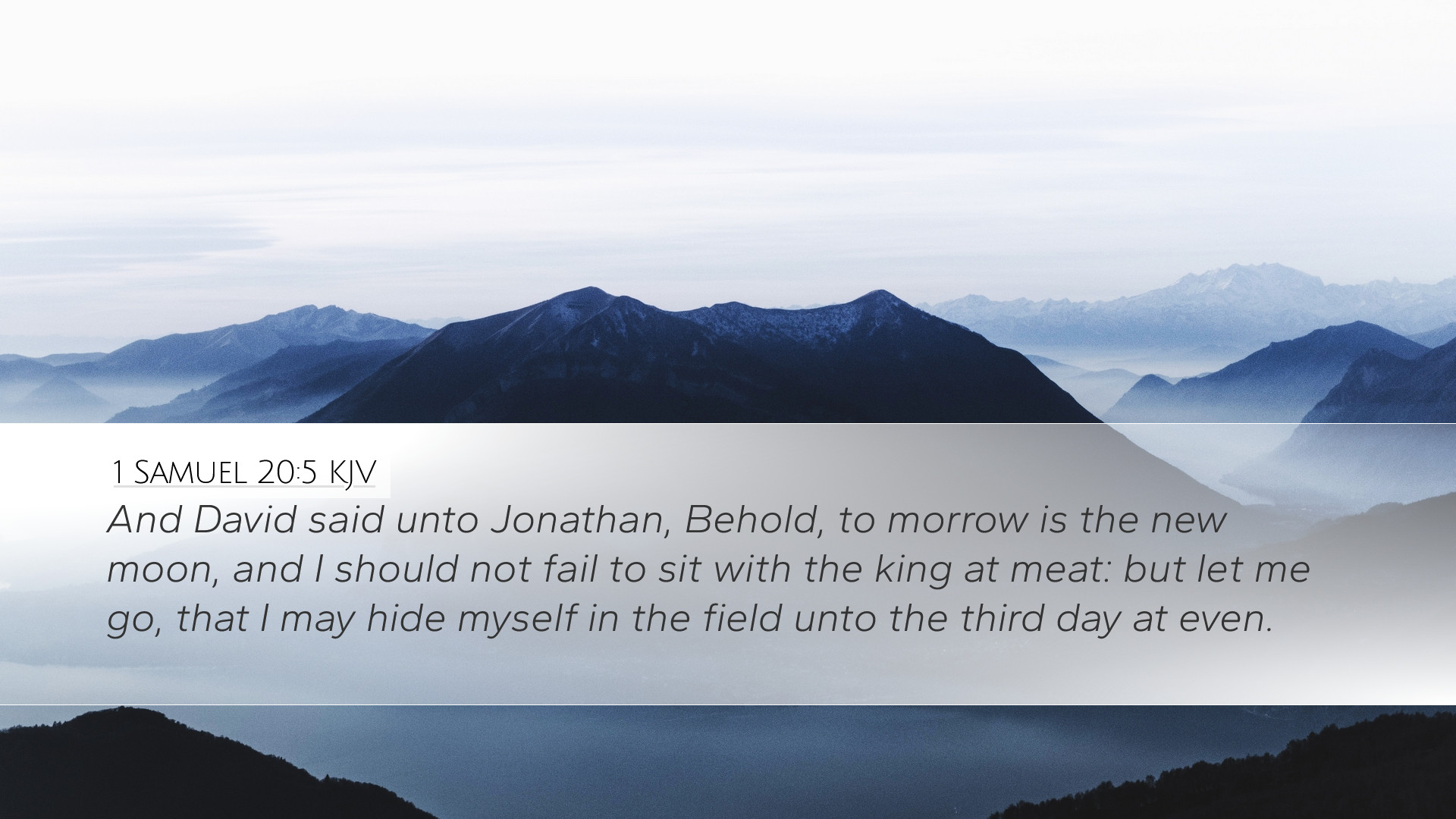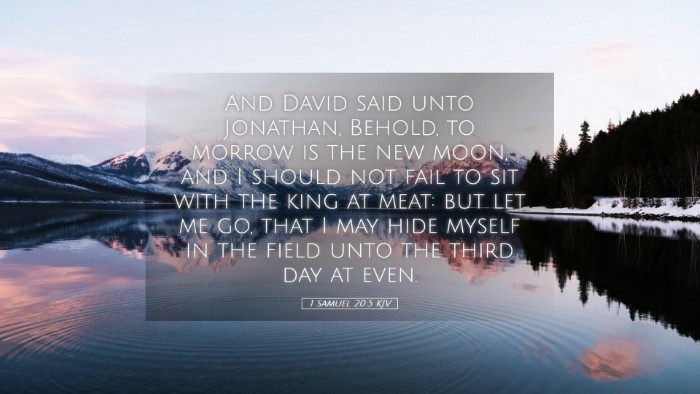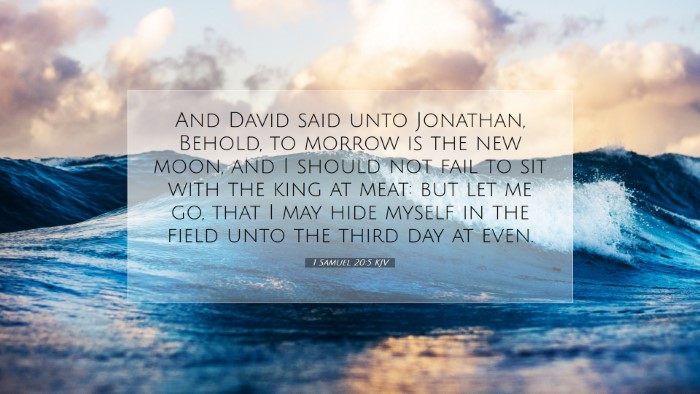Commentary on 1 Samuel 20:5
Verse: "And David said unto Jonathan, Behold, tomorrow is the new moon, and I should not fail to sit with the king at meat: but let me go, that I may hide myself in the field unto the third day at evening."
Context and Background
This verse occurs within a critical juncture in the narrative of David's rise to kingship and his complex relationship with King Saul and his son Jonathan. At this point, David is acutely aware of the growing enmity of King Saul towards him, which propels him to seek refuge. The significance of the new moon festival, a time of communal feasting and worship, is also crucial as it highlights the social and spiritual customs of Israel.
Insights from Various Commentators
Matthew Henry
Matthew Henry emphasizes the importance of friendship demonstrated in this passage between David and Jonathan. He notes that David’s request to hide indicates his awareness of the perils that his acceptance into the royal household has brought him. Henry points out that the new moon festival was a significant occasion for feasting and that David’s absence would be noticed, which highlights the gravity of his situation.
Henry articulates that David's movement to hide is proactive; it is a measure of self-preservation rooted in faith and prudence. He elaborates that Jonathan’s loyal response to David is illustrative of true devotion, showcasing the bond of friendship that goes beyond familial ties, especially in the face of adversity.
Albert Barnes
Albert Barnes provides a contextual analysis, noting the cultural significance of the new moon. He writes that the Israelites celebrated the new moon each month with special sacrifices and communal gathering, marking it as a time of joy and fellowship. David’s intention to be absent during this important festival shows the depth of his conflict with Saul.
Barnes also interprets David’s clandestine strategy as one of wisdom and caution. He suggests that David trusted Jonathan to understand the necessity of his actions, thus allowing them to devise a plan to communicate safely regarding Saul's intentions. This highlights not only the friendship but also the strategic thinking involved in navigating dangerous political waters.
Adam Clarke
Adam Clarke brings a linguistic analysis to the text and remarks on the phrase "hide myself in the field." He elaborates on the various meanings of hiding, linking it to themes of protection and divine providence. Clarke examines the implications of David's choice to remain concealed, suggesting that while it demonstrates fear, it is also a sign of David's reliance on God’s guidance.
Clarke underscores the bravery it would take for David to approach Jonathan with this request, acknowledging the potential risk to their friendship. He also indicates that Jonathan’s assistance to David serves not only as a protective measure for David but also as a testament to Jonathan’s understanding of God’s plan for David’s kingship.
Thematic Reflections
This verse allows for a deep exploration of several themes relevant for theological reflection:
- The Nature of Friendship: The bond between David and Jonathan serves as a rich model for understanding loyal friendship, particularly in adversity. Their relationship transcends familial obligations and emphasizes unconditional support.
- Faith and Strategy: David's actions illustrate a balance between faith and human strategy. While he trusts God, he also proactively seeks to protect himself, suggesting that faith does not negate the need for wisdom in dangerous situations.
- Divine Providence: The context of David seeking refuge speaks to the tension between human action and divine will. Clarke's perspective encourages readers to ponder how God orchestrates events, often through the agency of human choices.
Application for Pastors and Theologians
For pastors, this passage serves as an illustration of how to approach conflict and adversity within congregational life. The importance of cultivating genuine friendships among leaders, akin to that of David and Jonathan, can provide strength in tumultuous times. Pastors can draw on the themes of wisdom and faithfulness as they guide their congregations through challenges.
Theologians may explore the implications of divine providence in human affairs as seen in the lives of David and Jonathan. This passage serves as a case study in understanding how God uses interpersonal relationships to fulfill His purposes.
Conclusion
In summary, 1 Samuel 20:5 reveals a layered interaction marked by the complexities of friendship, faith, and the anticipation of divine intervention amidst the realities of human conflict. The insights from public domain commentaries enrich our understanding of this text, providing meaningful reflections for today’s pastors, students, and scholars of the Word.


